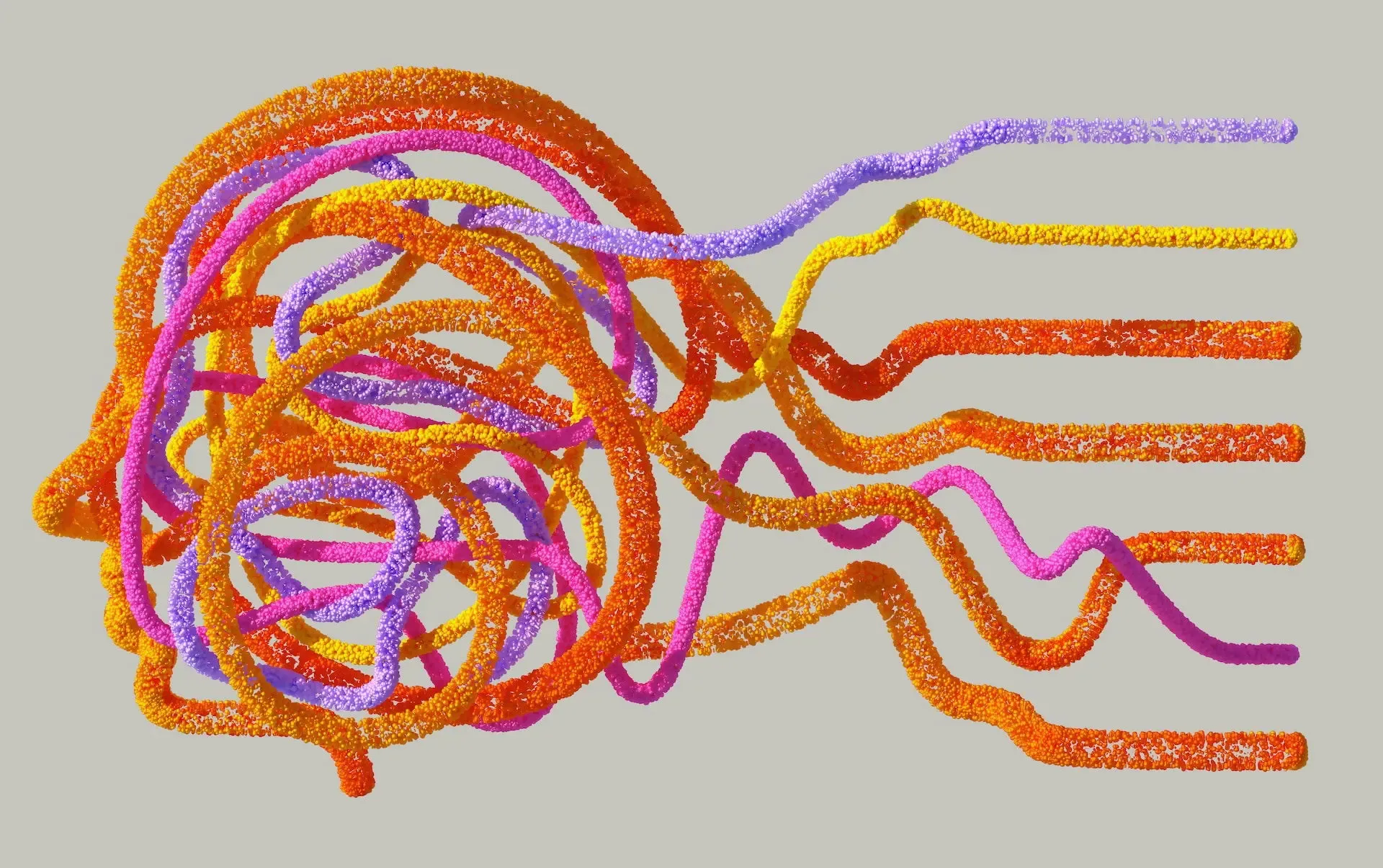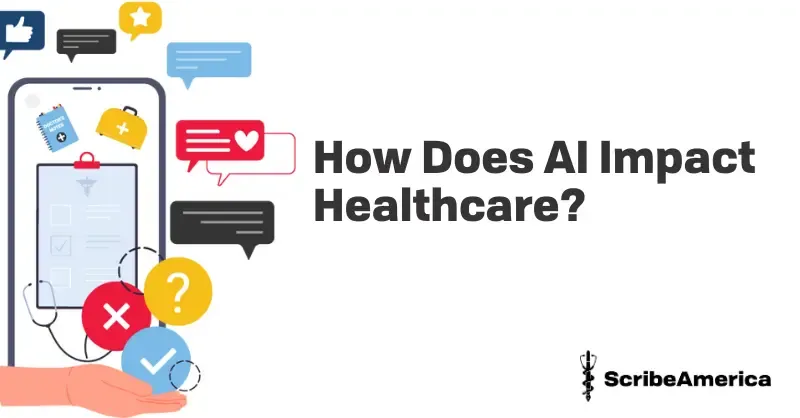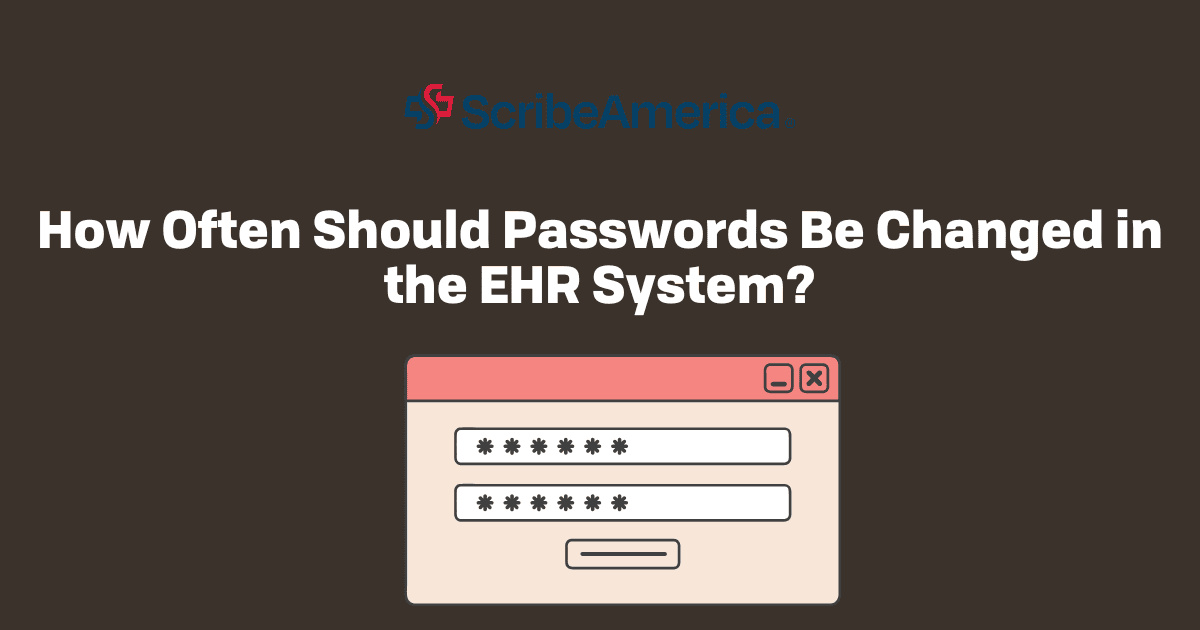Key Takeaways:
- AI in healthcare helps with identifying mental health issues, supporting autism patients, and optimizing administrative tasks like medical documentation.
- AI’s impact on healthcare leads to more efficient data analysis, enabling data-driven decisions that improve patient outcomes and operational efficiency.
- The integration of AI technology in healthcare reduces human error, increases productivity, and allows healthcare professionals to focus on patient-centered tasks.
The AI boom following the introduction of ChatGPT has sparked widespread discussions about its potential to transform various industries, and healthcare is no exception. In fact, AI is already impacting healthcare in significant ways, transforming both clinical and administrative processes. So, how is AI helping in the healthcare industry? Let's explore some of the major ways AI is revolutionizing healthcare today.
How Does AI Work in Healthcare?
Nowadays, artificial intelligence is used by numerous medical facilities and companies. Its use cases are versatile – AI is introduced both to optimize administrative duties and to improve patient care. So, how exactly does AI impact healthcare currently? Let’s look at some examples.

Identifying Mental Health Issues
One of the most notable examples of how AI impacts healthcare is in the field of mental health. Thymia, an AI-driven program, is helping to identify mental health conditions by analyzing voice and image data. The AI can detect emotional cues that may be invisible to the human eye, such as stress levels, exhaustion, and signs of depression. This AI impact on healthcare allows for a more accurate diagnosis and can lead to better treatment outcomes.
Supporting Patients with Autism
Apart from identifying mental illnesses, AI can impact the way physicians communicate with people with autism. The spectrum disorder makes it much more difficult to understand a patient's emotions, since they are often not expressed as we would expect them to be. Yet, with the use of smart bands, it is possible to fully comprehend what an autistic person is feeling. These tools analyze factors such as heart rate or muscle tension to identify the patient’s emotions. They are usually programmed to change the colors based on the wearer’s emotions, thus informing the physician about the feelings of their patient.
Improving Workflow and Data Collection
If you know what a medical scribe is, you probably realize how their administrative duties are important for the whole hospital’s integrity. Yet, performing all their tasks manually is a strenuous and time-ineffective work. Optimizing this is one of the most prominent benefits of AI in healthcare. Voice recognition artificial intelligence is used to prepare the drafts for medical scribes, which often only need to be proofread and corrected in some areas. As a consequence, the efficiency of the whole process rises, which leads to higher revenue for the hospital or clinic.
Streamlining Data Analysis
AI's capability to process and analyze large datasets is another example of how AI helps healthcare. By handling massive amounts of data at once, AI enables healthcare professionals to make data-driven decisions more efficiently. It also aids in improving examinations and enhancing patient care by providing actionable insights that might otherwise be missed. AI’s impact on the healthcare industry is evident in how it optimizes the management of healthcare facilities, ensuring more effective decision-making.
Conclusion: How AI Affects Healthcare
There are numerous examples of how does AI work in the healthcare industry. Its impact may be seen both in administrative and clinical duties. As such, it is clear that the future of healthcare will continue to introduce more solutions related to artificial intelligence and find further ways to use AI for the benefit of the patients.
Did you like this article? You may also read: What is Medical Billing and Coding? Healthcare in the 21st Century





